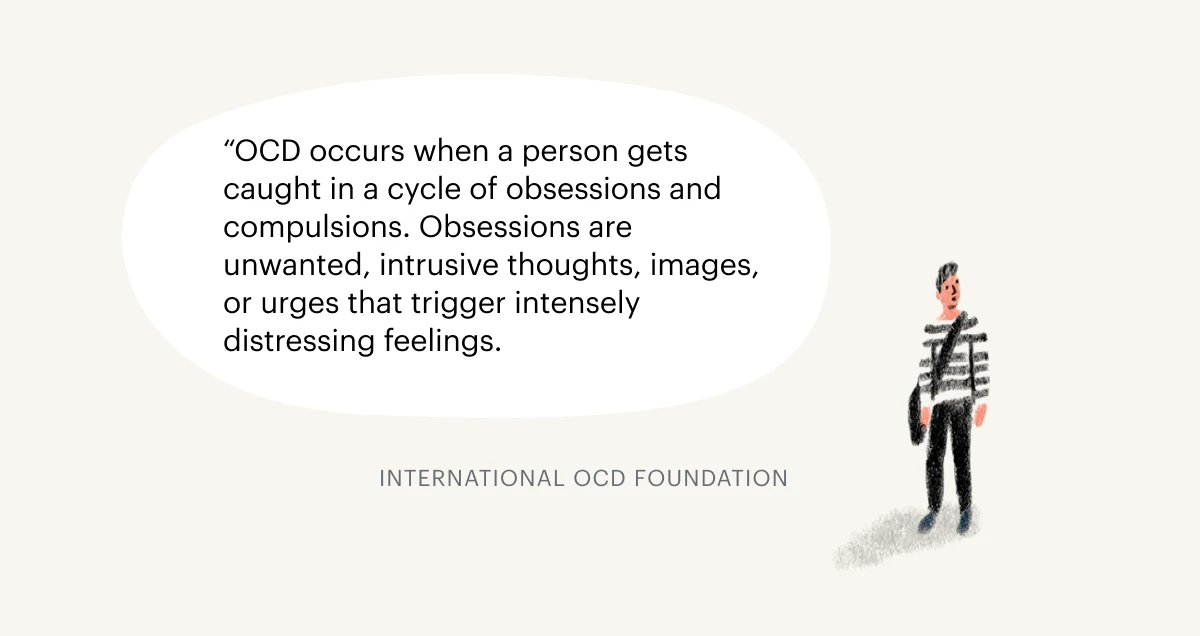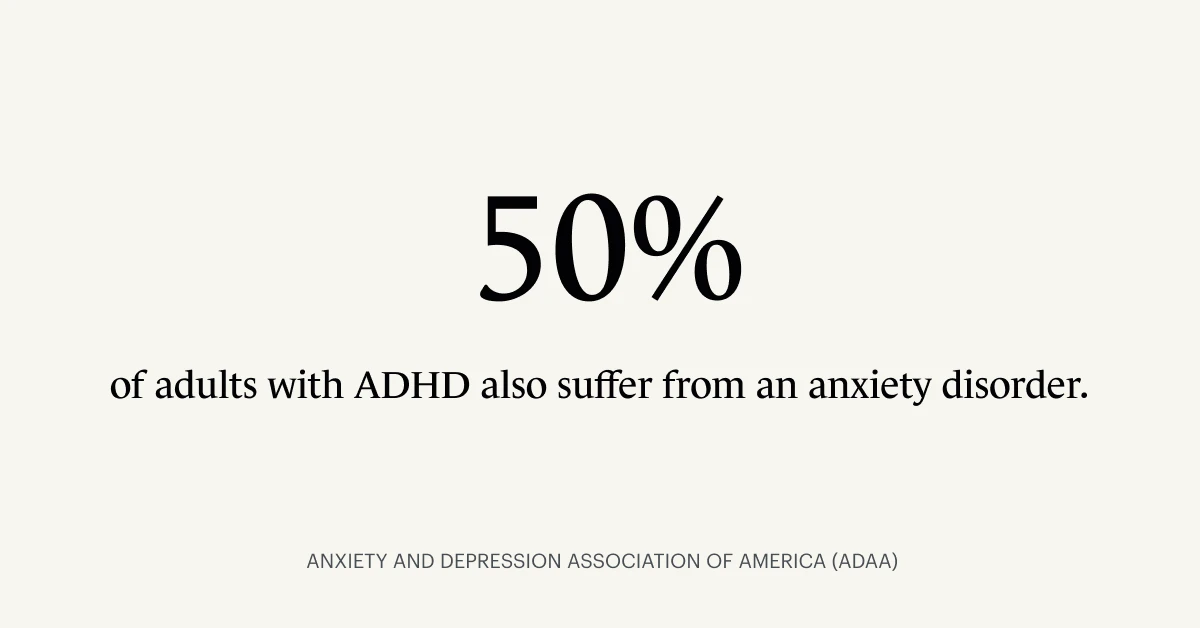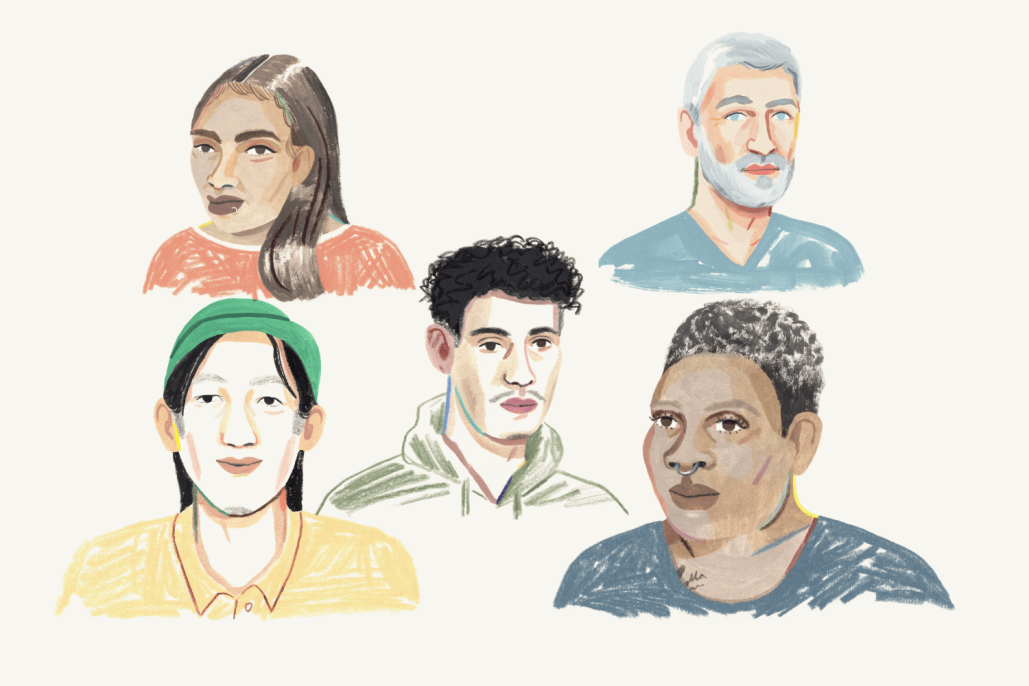Psychiatry has come a long way since the 1975 release of One Flew Over the Cuckoo’s Nest.
Yet, when the average American hears the phrase mental disorder or mental illness, unfortunately, the image of Louise Fletcher playing Nurse Ratched and Jack Nicholson playing patient Randee McMurphy still prevails.
As a licensed clinical social worker, I’ve had more than one client tell me they are fearful of being admitted into a psychiatric hospital because they’re afraid it’s going to resemble the one portrayed in “that Jack Nicholson movie.”
Unfortunately, even during a time when many people are sharing posts about mental health and therapy on social media, there is still plenty of misunderstanding and stigma surrounding mental health—escpicially around certain specific, and treatable, mental disorders.
I’ve had clients tell me they are fearful of being admitted into a psychiatric hospital because they’re afraid it’s going to resemble the one portrayed in “that Jack Nicholson movie.”
Stigmas around mental health can be dangerous, particularly if they cause shame and make it seem frightening or embarrassing for people to discuss treatable, yet misunderstood, mental disorders.
These misunderstandings can discourage us from speaking with a therapist or counselor or talking openly about our mental health needs with family and friends.
Mental illness remains misunderstood, in general
Fear and lack of education are at the root of the general public’s misunderstanding of many topics relating to psychology—including specific diagnoses and mental health disorders.
When we see people behaving in a way we don’t understand, or that looks odd to us, we may tend to back away.
First impressions are powerful. And, although it might not seem fair, judgments are made all the time on first impressions.
A study published in Personality and Social Psychology Bulletin found that cues including posture: facial expression and clothing style contribute to how people form their impressions.
Regular Americans aren’t the only ones making assumptions about individuals who have mental illnesses. Unfortunately, professionals in the medical and psychiatric fields can have preconceived ideas as well.
The term “diagnostic overshadowing” is used when physical symptoms are mis-attributed to a mental illness.
Psychiatric Services published a study that discovered people who were diagnosed with diabetes in addition to a co-occurring mental illness were less likely than those without mental illness to be hospitalized after an emergency department visit.
What are the 5 most misunderstood mental disorders?
1. Borderline Personality Disorder (BPD)
“Seldom does an illness, medical or psychiatric, carry such intense stigma and deep shame that its name is whispered... and its sufferers despised and even feared.”
The late Dr. Perry Hoffman, Ph.D., the founder of the NEABPD (National Education Alliance for Borderline Personality Disorder), wrote this in the introduction to the anthology Beyond Borderline: True Stories of Recovery From Borderline Personality Disorder.
According to the National Institute of Mental Health (NIMH), borderline personality disorder (BPD) is a mental illness that severely impacts a person’s ability to regulate their emotions.
This loss of emotional control can increase impulsivity, affect how a person feels about themselves, and negatively impact their relationships with others.
Individuals who have been diagnosed with BPD are often perceived as manipulative and attention-seeking.
Additionally, people with BDP may choose maladaptive coping behaviors such as suicide attempts and/or self-harm.
Clinicians have a tendency to view this behavior as a drain on their time and resources.
“Psychiatrists mentioned borderline personality disorder up to four times more often than any other diagnosis when asked about characteristics of difficult patients,” wrote the authors of a 2006 article on “Difficult Patients in Mental Health Care” published in Psychiatric Services.

A different way of thinking about self-harm is detailed in a study published in a 2014 paper published in Clinical Psychological Science.
“People who engage in self-injury don’t necessarily see pain as something to escape from,” explains the paper’s lead researcher, Harvard University professor of psychology, Dr. Jill M. Hooley, Ph.D. “Instead, experiencing pain validates their sense of being a bad or damaged person.”
2. Schizophrenia
According to the National Institute of Mental Health, people who have been diagnosed with schizophrenia may seem like they have lost touch with reality.
Psychotic symptoms include changes in the way a person thinks, acts, and experiences the world.
People with psychotic symptoms may lose a shared sense of reality with others and experience the world in a distorted way.
There is a myth that people diagnosed with schizophrenia can be violent.
A 2009 systematic review of studies concerning this topic found that the risk for violence in people with substance use disorder (SUD), who don’t have a diagnosis of psychosis was similar to that in people who were dual diagnosed with SUD and psychosis.
Additionally, the risk for violence in people diagnosed with SUD was higher than those in people with psychosis alone.
3. Dissociative identity disorder (DID)
Dissociative identity disorder (DID), formerly known as Multiple Personality Disorder, typically first develops as a response to a traumatic event.
According to the American Psychiatric Association (APA), symptoms of dissociative identity disorder (DID) include:
The existence of two or more distinct identities. The distinct identities are accompanied by changes in behavior, memory and thinking. The signs and symptoms may be observed by others or reported by the individual.
Ongoing gaps in memory about everyday events, personal information and/or past traumatic events.
The symptoms cause significant distress or problems in social, occupational or other areas of functioning.
One study described the case of a 55-year-old Caucasian woman with a history of substance use disorder (SUD) with seven personalities.
Multiple aspects of her personalities were reported, including the following: a personality of a seven-year-old child, a personality that would behave as a teenager, and another that acted like a male person in addition to her normal 55-year-old personality.
There are a number of myths surrounding dissociative identity disorder.
One myth is that DID is overdiagnosed.
In reality, studies show that most individuals who meet criteria for DID have been treated in the mental health system for 6–12 years before they are correctly diagnosed with DID.
Another myth is that DID is incredibly rare.
Conversely, the prevalence rates found in psychiatric inpatients, psychiatric outpatients, the general population, and in a specialized inpatient unit for substance dependence suggest otherwise. DID is found in approximately 1.1%–1.5% of all these populations.
4. Obsessive compulsive disorder (OCD)
Obsessive Compulsive Disorder or OCD is another diagnosis that can be easily misunderstood.
According to the International OCD Foundation, “OCD occurs when a person gets caught in a cycle of obsessions and compulsions. Obsessions are unwanted, intrusive thoughts, images, or urges that trigger intensely distressing feelings. Compulsions are behaviors an individual engages in to attempt to get rid of the obsessions and/or decrease his or her distress.”
OCD uses language that has made its way into everyday language.
How often have you heard someone say they’re “obsessed” with a fashion designer, actor, or a sports team?
Have you heard someone call themself “obsessive-compulsive,” regarding a specific aspect of their life, such as work?
As the International OCD Foundation points out, the difference is that “individuals with OCD do not want to have these thoughts, and, in fact—they find them disturbing.
In most cases, people with OCD realize that these thoughts don’t make any sense.
Obsessions are typically accompanied by intense and uncomfortable feelings, such as fear, disgust, doubt, or beliefs that things have to be done in a way that is “just right.”

Imagine washing your hands over and over until they bleed because you’re convinced you’ve come in contact with germs. Or following an elaborate set of rituals that you have to perform before you can leave the house that involves checking the stove repeatedly, counting, checking the lights and more that can take as long as an hour.
That is how OCD manifests itself in individuals with the disorder.
5. Attention deficit hyperactivity disorder (ADHD)
Attention deficit hyperactivity disorder (ADHD) is a neurodevelopmental condition—this means it has to do with the development of the brain and nervous system.
While an increasing number of Americans seem to be diagnosed with ADHD, it may surprise you to learn that some psychiatrists and ADHD experts believe it is under-diagnosed.
"Unfortunately, the diagnosis of adult ADHD is vastly under-recognized," says Dr. Lenard A. Adler, M.D., Director of the adult ADHD program at New York University Medical Center in a 2014 article published in Innovations in Clinical Neuroscience.
"Only 10%-25% of adults with ADHD are actually diagnosed and adequately treated," he explains.
Signs of ADHD in adults include: inability to focus, or hyperfocusing, disorganization, issues with time management, other emotional or mental illness, substance abuse, struggles in interpersonal relationships, and forgetfulness or “flakiness.”
Because ADHD so often goes undiagnosed—with symptoms either not noticed or not taken seriously—many adults have been living with ADHD their entire lives without knowing.
Untreated ADHD can have serious consequences.
Adults who have grown up with undiagnosed ADHD are more likely to have an anxiety disorder or depression, than those without ADHD.
Women and girls, in particular, have tended to be under-diagnosed with ADHD.
According to the Anxiety and Depression Association of America (ADAA), about 50% of adults with ADHD also suffer from an anxiety disorder.

How to find mental health support and help
Struggling with a mental illness in isolation makes us feel as though we are alone in our journey.
A 2017 study found that positive social communication with family members and friends reduces anxiety and develops the feeling of security.
The study also found that social support gives people the feeling of being loved, cared, respected, and belonging to a network of communication.
Reaching out for support and guidance from a therapist or mental health professional is a sign of strength and courage.
The Monarch Directory by SimplePractice can help you to find a mental health professional who is suited to your individual needs.
Many have online booking and offer free 15-minute initial consultations, as well as telehealth video sessions.
Finally, browse therapists by insurance to find a provider who accepts your insurance.

Specific support for the 5 disorders discussed in this article
Borderline Personality Disorder support
On the Monarch Directory, you can find and book sessions with therapists who specialize in borderline personality disorder (BPD).
You can also see therapists who specialize in dialectical behavioral therapy (DBT), a type of therapy developed specifically to treat individuals with BPD.
The website for NEABPD, the National Education Alliance for Borderline Personality Disorder.
Borderline Personality Disorder Resource Center
Schizophrenia support
Consider Monarch therapists near you who specialize in treating schizophrenia.
Schizophrenia and Psychosis Action Alliance
Dissociative identity disorder (DID) support
Here are Monarch therapists near you who specialize in treating dissociative identity disorder (DID).
New Landscape ~ DID/MPD Peer Led Support Group
Obsessive compulsive disorder (OCD) support
Consider Monarch therapists near you who specialize in treating OCD.
International OCD Foundation Support Groups
ADHD support
Here are therapists near you who specialize in treating clients with ADHD.
Attention Deficit Disorder Association

If you are considering self-harm, reach out for help
If you or someone you know is in immediate distress or is thinking about hurting themselves, call the National Suicide Prevention Lifeline toll-free at 1-800-273-TALK (8255) or text or call 988.
You also can text the Crisis Text Line (HELLO to 741741) or use the Lifeline Chat on the National Suicide Prevention Lifeline website.
READ NEXT: What It’s Like to Live With Borderline Personality Disorder (BPD)
Need to find mental health support near you? Check out the Monarch Directory by SimplePractice to find licensed mental health professionals with availability and online booking.






